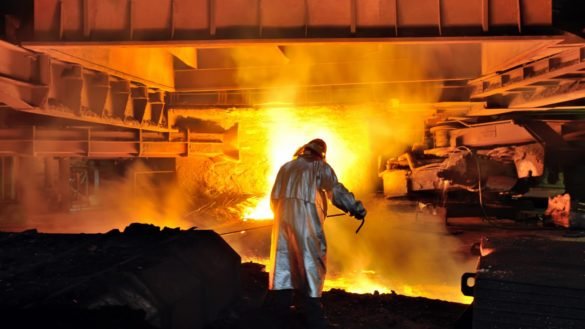Metallurgical and Materials Engineering plays a role in all manufacturing processes which convert raw materials into useful products adapted to human needs. Metallurgy is a domain of materials science and engineering that studies the physical and chemical behavior of metallic elements, their intermetallic compounds, and their mixtures, which are called alloys. Metallurgy encompasses both the science and the technology of metals. That is, the way in which science is applied to the production of metals, and the engineering of metal components used in products for both consumers and manufacturers.
Metallurgy is distinct from the craft of metalworking. Metalworking relies on metallurgy in a similar manner to how medicine relies on medical science for technical advancement. A specialist practitioner of metallurgy is known as a Metallurgy.
Historically, metallurgy has predominantly focused on the production of metals. Metal production begins with the processing of ores to extract the metal, and includes the mixture of metals to make alloys. Metal alloys are often a blend of at least two different metallic elements. However, non-metallic elements are often added to alloys in order to achieve properties suitable for an application. The study of metal production is subdivided into ferrous metallurgy (also known as black metallurgy) and non-ferrous metallurgy (also known as colored metallurgy). Ferrous metallurgy involves processes and alloys based on iron while non-ferrous metallurgy involves processes and alloys based on other metals. The production of ferrous metals accounts for 95 percent of world metal production.
 Modern metallurgists work in both emerging and traditional areas as part of an interdisciplinary team alongside material scientists, and other engineers. Some traditional areas include mineral processing, metal production, heat treatment, failure analysis, and the joining of metals (including welding, brazing, and soldering). Emerging areas for metallurgists include nanotechnology, superconductors, composites, biomedical materials, electronic materials (semiconductors), and surface engineering.
Modern metallurgists work in both emerging and traditional areas as part of an interdisciplinary team alongside material scientists, and other engineers. Some traditional areas include mineral processing, metal production, heat treatment, failure analysis, and the joining of metals (including welding, brazing, and soldering). Emerging areas for metallurgists include nanotechnology, superconductors, composites, biomedical materials, electronic materials (semiconductors), and surface engineering.
Our firm has a staff with strong engineering and geological science background who evaluate opportunities involving mineral exploration, underground and surface mining operations, as well as, mineral processing technologies. Please contact us with any such opportunity if it falls within our acquisition criteria. Also check our affiliate at EgyptianSilicaSand.com if you need to acquire any quantity of silica sand, zircon sand, or ziron powder.




